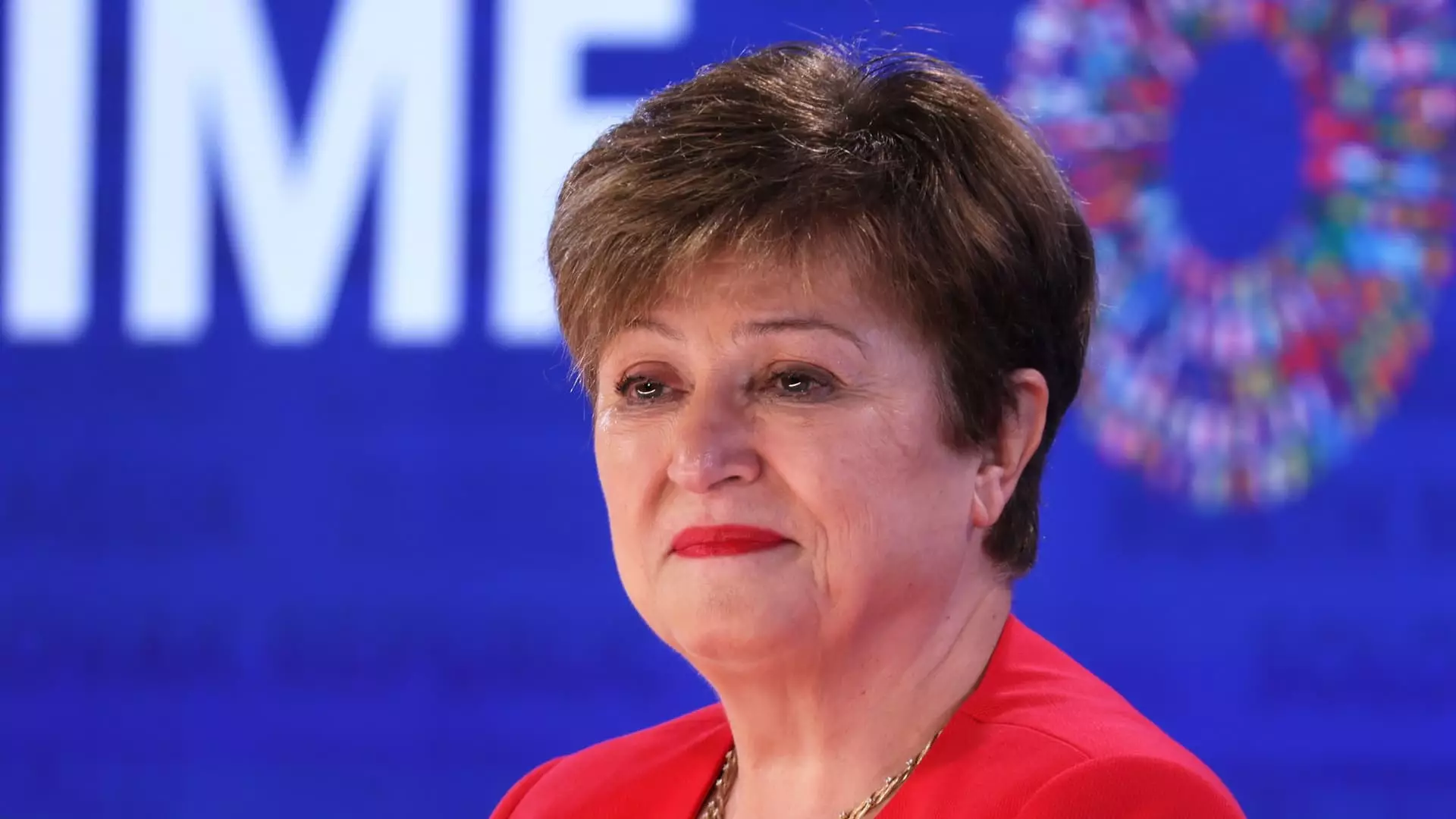In a clear and assertive address, Kristalina Georgieva, the Managing Director of the International Monetary Fund (IMF), has raised important concerns about the persistent issues crippling the global economy: soaring debt levels coupled with stagnated growth. Her comments, made during an interview with CNBC, reflect the cautious optimism observed in some sectors while underlining the dire need for structural improvements to ensure sustainable economic health. As nations experience recovery from the pandemic-induced downturn, underlying vulnerabilities such as high borrowing rates threaten to undermine that progress.
Georgieva emphasized that the global community has become almost desensitized to the accrual of debt, which, mixed with “anemic growth,” creates a powder keg situation for economic policies. While there may be a tendency to view recovery as a sign that all is well, her words serve as a sobering reminder that such conditions are precarious. The underlying message is clear: complacency should not take root just because some signs of economic improvement are visible.
While some economies have celebrated relative successes in curbing inflation, Georgieva points out that this triumph is far from universal; pockets around the globe continue to grapple with rising prices. This disparity breeds not only economic strain but also social unrest, as individuals and communities feel the weight of inflated costs on their standard of living.
As she articulated, “The impact of higher prices remains, and it is making many people in many countries feel worse off and angry.” This highlights an escalating conflict between macroeconomic achievements and microeconomic hardships, creating a troubling schism within the global economic landscape. The IMF’s role in addressing these discrepancies is critical, as policymakers need to be acutely aware of the far-reaching consequences of their decisions, particularly in the face of such discontent.
Amidst rising tensions in international trade, Georgieva warned that the post-war order of globalization is under serious scrutiny. The inclination of governments towards protectionist measures signifies a shift in strategic priorities, with countries increasingly favoring domestic security concerns over international cooperation.
The trade policies between the U.S., European Union, and China exemplify this shift, wherein punitive tariffs are employed to address grievances related to perceived unfair trade practices. Georgieva pointed out that while these actions may seem justified from a nationalistic perspective, they harbor the potential to breed mistrust between nations and deepen existing economic divides.
In her analyses, she effectively outlined the paradox of protectionism: while it aims to defend national interests, it often ends up harming consumers and businesses within the implementing countries. Georgieva’s call for carefully weighing the costs and benefits of trade measures is a prudent strategy that encourages dialogue over isolation.
Georgieva’s concerns extend beyond economic metrics; she has keenly identified wider geopolitical tensions as significant risks to financial stability. The ramifications of conflicts like the being observed in the Middle East are not limited to regional players but resonate through global markets, especially in oil and gas sectors.
That instability, multiplied by the burdens of inflation and trade disputes, creates a volatile environment for economies trying to recover from pandemic setbacks. The IMF’s responsibility here is monumental, as it must navigate these treacherous waters while offering guidance to afflicted nations looking for pathways to stability.
As the world prepares for the upcoming IMF and World Bank annual meetings, issues of debt management, inflation control, and geopolitical stability will undoubtedly take center stage. Georgieva’s insights serve as a clarion call for collective action: nations need to work together to address these pressing challenges. The balance between national interests and international cooperation has never been more delicate, and effective solutions will require a shared understanding of responsibilities and outcomes.
In light of the current economic landscape, the onus lies on leaders to foster collaborative frameworks that promote both growth and fairness. The IMF’s expertise remains vital in guiding this process, ensuring that the lessons of the past are integrated into future economic strategies and that policymakers approach these challenges with foresight rather than reactionary measures. The path forward demands a careful consideration of economic realities, where unity in action can help mitigate the crises at hand.


Leave a Reply